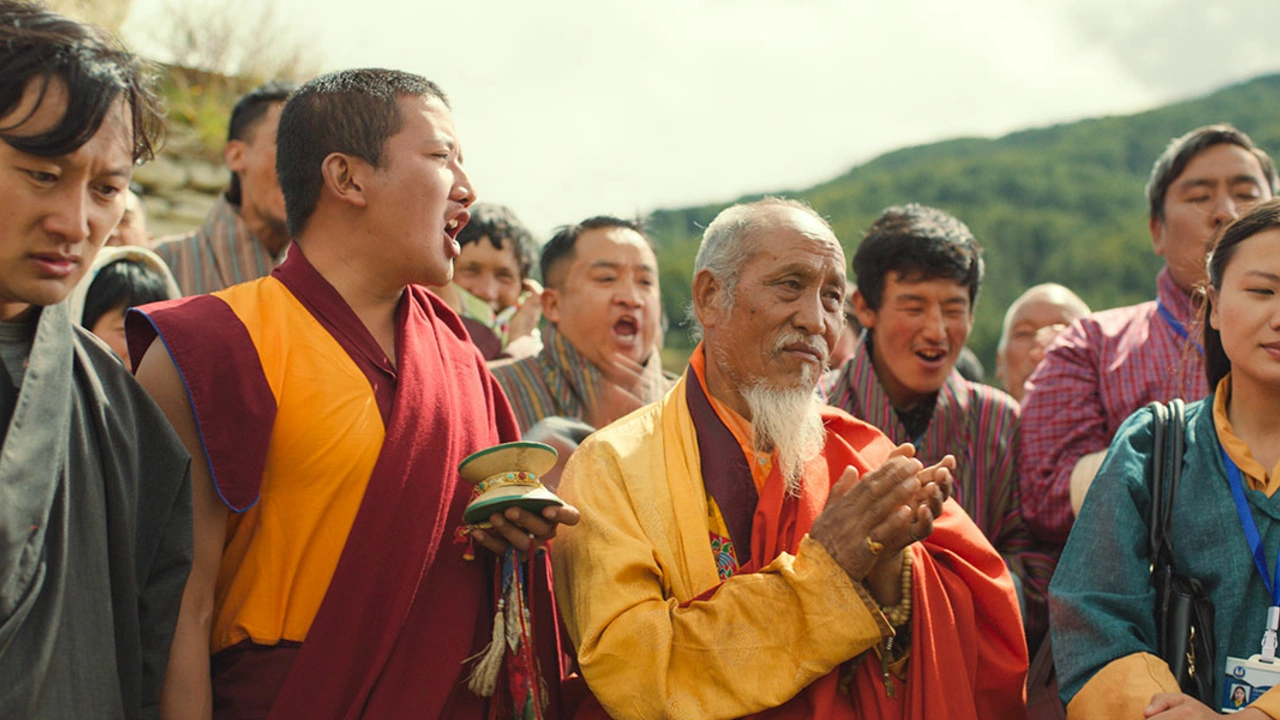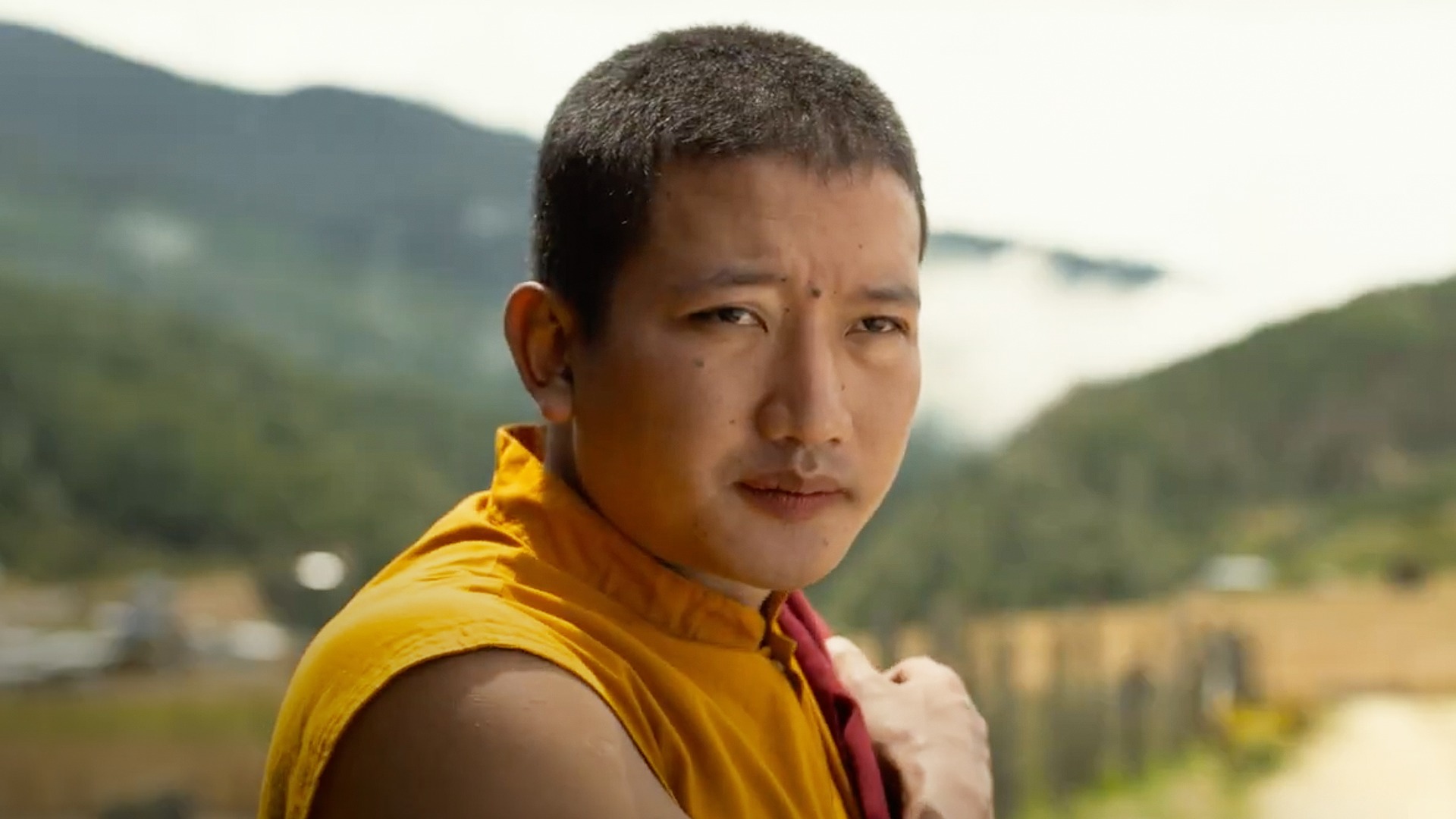“THE MONK AND THE GUN”; film review
The influence of the Western world: is it good for the planet? History shows that, perhaps, the U.S. needs to stop pushing our ways on every shore on which we land. Writer/director Pawo Choyning Dorji’s “The Monk and the Gun” examines the pitfalls of democracy and cautions embracing modernization in a land not yet open to the outside world. Dorii’s film contrasts the Bhutanese way of life with the Western way of television and organized elections, as these things have seeped into the region, upending the way things are done.
The year is 2006, and it has not been a decade since the Kingdom of Bhutan began to allow the internet and television. Big changes are on the horizon. Renouncing his throne, the king has called for democratic elections. Representatives from the newly established election council have come to the small village of Ura to educate the people on the voting process, planning a mock election to help teach what it is all about. Each side is given a color; a Blue, a Red, and a Yellow party. When a certain color wins, it becomes clear the people chose the color of their king. Getting accustomed to tv and the world wide web was a cinch. An organized and working democracy might be a bumpier road.
Along with the changing country, there is a monk who wishes to acquire a gun for his lama. To what end and what on earth would a lama want with a gun? The pleasures of discovering the answers are just a few of the ingredients that make this film special.
The lama (Kelsang Choejay) appears unnerved by the news that the king is abdicating his throne. His young disciple, Tashi (Tandin Wangchuk), is tasked to help him with a ritual that will set things in their proper place. The lama asks to have it done in four days and for Tashi to bring him a gun to complete the mysterious ritual.
The film shifts focus to the village and the preparation for the upcoming mock election, as Western values have certainly arrived. The citizens are enjoying their TVs and computers while drinking Coke and watching James Bond movies. Not everyone fully embraces these changes and the upcoming election is causing some to distrust those who are welcoming this new way.
Much like in a Robert Altman film, Dorii’s film moves like a breeze through the characters and how all of this impacts their lives. The director blends the side stories skillfully, achieving a sense of place and community. The most interesting are Choephel (Choeying Jatsho) and his wife, Tshomo (Deki Lhamo). Choepel is tired of (and embarrassed by) his nation’s old ways and looks forward to the Westernization of their village. Welcoming the try at democracy, he is excited for a more modern way of life. Tshomo is less than enthusiastic and has a distrust of politicians and their empty promises. Happy with their family and peaceful life, she finds the attempt at democracy useless. Why rock the boat just to “keep up” with the rest of the world?
Achieving most of the film’s laughs is an American named Ron (Harry Einhorn) who has come to buy the same rifle Tashi is looking for. Ron is being guided by Benji (Tandin Sonam) who is his translator, as the two stumble over many mess-ups while trying to purchase the weapon. Ron and Benji’s “adventures” are colored by the screenplay’s smart observational humor, making pointed statements about culture.
The icing on the visual cake is the breathtaking cinematography from Jigme Tenzing. The camerawork gives the film a serenity and naturalness through its peaceful framing of mountains and statues; the grandeur of the land a vast and beautiful reminder of the purity of the village and its people.
Every nation has its own narrative. It is up to each one to write its own story and keep its history alive in the teachings of scholars and in the voices of the elders.
Pawo Choyning Dorji isn’t coming out against Western influence, he just asks for caution. “The Monk and the Gun” is a warm, often humorous, and sometimes suspenseful motion picture about the flow of life and the crossing paths of different cultures.
news via inbox
Nulla turp dis cursus. Integer liberos euismod pretium faucibua




